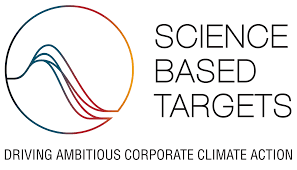The international Science-Based Targets initiative (SBTi) has validated Glaston’s carbon dioxide emissions reduction targets for its own operations (Scope 1 and 2) and for the value chain (Scope 3). SBTi encourages companies to implement climate measures in line with the Paris Agreement’s emissions reduction targets, i.e. to limit global warming to 1.5 °C.

Glaston is one of the first glass processing technology companies in the world to have received validation from the SBTi for its greenhouse gas emissions reduction targets. The company is committed to reducing its absolute Scope 1 and Scope 2 greenhouse gas emissions by 50.4% by FY2032 from a FY2022 base year. Glaston is also committed to reducing the Scope 3 greenhouse gas emissions generated in its value chain by 58.1% per square meter of sold glass processing capacity within the same target period.
Scope 1 and 2 emissions from Glaston’s own operations form a very small fraction of the company’s total emissions. In order to achieve the emissions reduction targets for its own operations, Glaston intends to phase out the use of natural gas and other fossil energy sources and to continue to increase significantly the proportion of renewable energy.
The majority, around 99%, of all emissions associated with Glaston’s activities are generated in the company’s value chain (Scope 3). The most significant sources of emissions are the electricity consumed during the life cycle of the machines sold by Glaston (2023: 81%) and purchased products and services (2023: 17%). To achieve the Scope 3 target, Glaston must continue to develop its operating processes and products in cooperation with subcontractors, goods suppliers and customers.
“For Glaston, promoting sustainability and the green transition is an integral part of the strategic development of our business. It is important for us to reduce the emissions arising from our activities, most of which are generated in our value chain. We have also been working for decades to reduce the electricity consumption of our products, thanks to which Glaston is a frontrunner in energy efficiency of glass processing equipment. To achieve our targets, we must continue to improve the energy efficiency of our equipment and promote its energy-efficient use through new innovations and more comprehensive solutions. In this way, in collaboration with our partners, we can promote lower-carbon glass processing,” says Marko Mökkönen, Glaston’s Director, Sustainability.
In 2023, Glaston’s total emissions were 323,883 tCO2e, of which the Scope 1 and 2 emissions were 1,283 tCO2e and the Scope 3 emissions were 322,644 tCO2e.
Science-Based Targets initiative (SBTi)
SBTi is an organization that encourages companies to set science-based targets that will increase their competitiveness in the transition to a low-carbon society. Companies committed to the initiative set for their operations science-based emissions reduction targets in accordance with the Paris Agreement, which support measures to limit global warming to 1.5 °C.
Further information:
Glaston Corporation
Päivi Lindqvist, Chief Financial Officer and sponsor of the Sustainable business cornerstone project, tel. +358 10 500 500
Marko Mökkönen, Director, Sustainability, tel. +358 10 500 500
Glaston Corporation
Pia Posio, VP Communications, Marketing and IR
Tel. +358 10 500 5076
Glaston Corporation
Glaston is the glass processing industry’s innovative technology leader supplying equipment, services and solutions to the architectural, mobility, display and solar industries. The company also supports the development of new technologies integrating intelligence to glass.
Glaston is committed to providing its clients with both the best know-how and the latest technologies in glass processing, with the purpose of building a better tomorrow through safer, smarter, and more energy efficient glass solutions. Glaston has manufacturing, services and sales offices in nine countries, and its shares (GLA1V) are listed on Nasdaq Helsinki Ltd.
